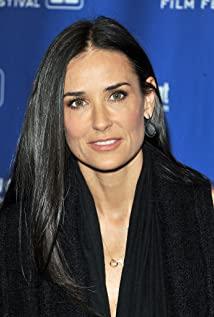"Devil Girl Soldier" is a feminist film directed by Ridley Scott, which won the 7th MTV Film Awards for Best Fighting Scene. Director Ridley Scott’s feminist tendencies are very obvious. From the earliest first "Alien" to "The End of the Wild Flower" to the latest "Alien" prequel series, there is a particularly strong one in his movies. When the male actor’s IQ is generally dropped, his heroine is responsible for IQ and rationality, coexisting with strength and courage, without compromising, and not giving up (most of them survived until the end of the movie). And "Devil Girl Soldier" is a film under the basic theme of promoting feminism. Although it is not as deep and complete as the plot setting of "The End of the Wild Flower", it also raises some realistic dilemmas faced by feminism. .
This film mainly spreads the plot from two conflicts. The first is the conflict between feminism and the general social phenomenon of discrimination against women. The opening is the accusation of a certain naval investigation by the female Senator Di Haiwen, publicly pointing out the prejudice and discrimination against women by the navy minister candidates, and using gender equality. Politically correct, in order to force the Navy to accept female soldiers; high-level navy tit-for-tat, throw out a plan to fully accept female soldiers, provided that a female soldier can pass a 60% elimination rate of naval special forces training. As a result, Captain O'Neill, a female protagonist with high quality and feminine characteristics, was selected to participate in this training.
In the selection process, female soldiers who do not conform to the characteristics of women are excluded. This implies that when feminism promotes women’s rights, it must be based on the default feminine characteristics of feminine femininity. If the selected women are extremely masculine Traits (such as strong, big, etc.), then people from the male perspective will inevitably attack that they cannot represent the majority of women; the political correctness of gender equality is actually only superficial, hypocritical and fragile, as long as feminism is a little careless, Will be attacked "to seek the rights of women from the perspective of men."
It is conceivable that O'Neill’s training was not all smooth sailing. He trained his peers to resist slander, and his peers abandoned during the training. From a male perspective, these are men’s instinctive responses to women’s invasion of their field. They are used to this field only being men. , Has a natural instinctual suspicion of women; since the feminist movement in the 18th century, this kind of suspicion against women’s words and deeds is common among men, and they generally harbor the prejudice that women are inherently weak and cannot complete "male work". But this contradiction is not irreconcilable. When O'Neill's perseverance and training results are no different from those of men, they changed their attitude and welcomed her to join.
This also shows that for hundreds of years, feminism has mainly fought for the right of women to do certain things. As long as women can gain the power to conspire with men, women will participate in things that were previously considered inappropriate for them. This will change the society’s prejudice against women, and in turn will promote the development of women’s rights. However, the prerequisite for all this to develop in a normal cycle is that women and men must compete under the same standard; after obtaining the "right to participate", O'Neill's next goal is to strive for the same training standards as men.
When men believe that women are in a disadvantaged position and advertise equality between men and women, they inevitably misunderstand the concept of equality, and therefore tend to set lower "eligibility standards" for women. The Naval Special Forces Training Camp set a lower training standard for O'Neill. When her performance is lower than that of men, but she is qualified but the men are not qualified, she is the only one who raises the question and must be trained in the same way as men. Training to assess performance under the standard requires men and women to compete on an equal footing, not fair competition. Only in this way can Captain O’Neill’s efforts be truly valuable. Otherwise, it will only acquiesce in the “accommodating care” of men and leave the masculist to handle it.
When the education level of men and women is the same, the practice of treating fairness as equality is actually a kind of discrimination against women in disguise. It defaults to differences in physique between men and women while discriminating against such differences. This "fair practice" should be resisted. Because it will reduce the value contained in women's efforts. The current struggle for women’s rights and interests should be based on strict equality between men and women. Regardless of occupation, the same standard conditions should be set for men and women, and women’s rights to "protect the motherland" should be maintained. In the fields of police, fire protection, engineering, etc., the ratio of male to female recruitment is not set, but the same standard conditions are set. As long as this condition is met, admission based on the best is the greatest equality between men and women. In the real world, there are many women who just don’t want equal rights to take care of. They often enjoy policy care for women and low working standards, but they don’t realize the potential threat of such “care” to them: men anytime, anywhere. It can be questioned that they cannot achieve the same working ability as men; while women cannot make reasonable refutations under the consensus of equality between men and women.
Although this is based on the premise of equal opportunities for men and women to receive education, it is bound to be a trend of equal rights. One aspect of the film's expression is also to promote this trend: do not think that the scope of activities of men and women is restricted due to inherent differences between men and women.
Another conflict in this film is the conflict between feminism and political conspiracy. As a trend of thought with political implications, feminism is bound to seek the asylum of political forces and put forward its own political propositions. The contact between feminism and politics is inevitable. But under patriarchal politics, if there is no interest, conspiracy politicians will never advocate feminism. It is more that politicians stand on the commanding heights of feminist political correctness and use feminism as a tool to seek specific benefits. Although a female senator seeks rights for women, when her starting point is not to seek rights for women, she is not a feminist, but an ordinary politician. After using feminism to gain political benefits, female senators crossed the river to break down the bridge to feminism. The phrase "politicians cannot let women die for the country" has revealed that the politicians' views are just a kind of "political correctness" for their own use.
Although O'Neill's fighting of wits and bravery saved his feminist career on the verge of disintegration, it also broke the naive idea of feminists who wanted to obtain women's rights solely by political power. Political power is a force that is always neutral. It will not simply help feminism, nor will it unreservedly "send Buddha to the West". It only cares about its own interests. At present, it is more that certain forces instrument feminism, and in fact they do not support feminism, and their feminist views cannot withstand any test. They are just a perceptual unlimited feminism that is hostile to all men. , Anti-marriage and anti-birth, blindly guiding public opinion and gaining support from public opinion are the basic reasons for the current stigmatization of feminism.
The status quo of women's oppression is the overall social environment, in everyone's heart: at the beginning of a person's birth, the surrounding education and environment are preaching an unnamed masculinity, and inexplicably nurturing a person to look at the world through a male perspective , Passing legislation will not change anything overnight, it is just an empty paper. To change this status quo, we must change this masculinist tendency in education. In social life, women have achieved achievements that are not inferior to men through struggle, change the cognition of the entire society, and create a more harmonious social atmosphere. Paying attention to specific incidents of discrimination against women is beneficial to the cause of feminism, but it is not a cure for the symptoms, and the fundamental discrimination against women has not been addressed squarely, let alone resolved.
In short, "Devil Girl Soldier" is a film that better reflects the reality of feminism. Although it is a film 22 years ago, it also has a good enlightenment for the current development of feminism in China. It not only affirms feminism, but also It also provides a way for the development of feminism.
View more about G.I. Jane reviews











